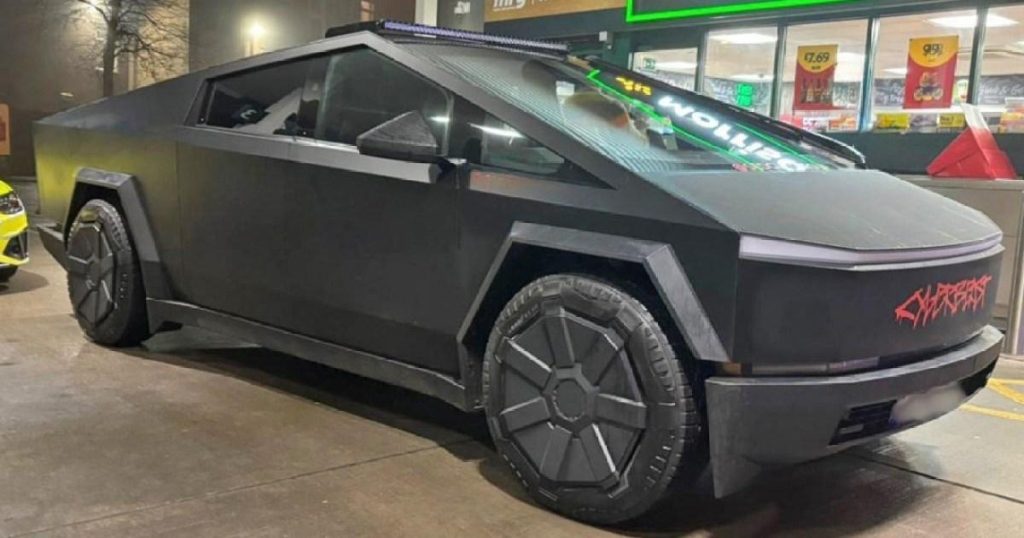The sighting of a Tesla Cybertruck navigating the roads of Bury, Greater Manchester, sparked both curiosity and concern, ultimately leading to its seizure by local authorities. Although generating considerable buzz since its unveiling, the Cybertruck remains unauthorized for UK roads due to its non-compliance with established safety and regulatory standards. This particular incident highlights the ongoing tension between the allure of innovative automotive technology and the imperative of adhering to legal frameworks designed to ensure public safety. The vehicle, identified as a “Cyberbeast” model, was driven by a UK resident but registered and insured abroad, a practice strictly prohibited within the UK. This violation, coupled with the Cybertruck’s lack of a Certificate of Conformity, prompted police intervention and subsequent impounding of the vehicle under Section 165 of the Road Traffic Act.
The Cybertruck’s distinctive design, featuring a stark, angular stainless steel exoskeleton and purportedly impact-resistant armored glass, has been a subject of both fascination and controversy. While visually striking, these unconventional features raise legitimate safety concerns for other road users and pedestrians in the event of a collision. The vehicle’s non-conformity to UK regulations encompasses various aspects, including safety standards, emissions levels, and dimensional limitations. These regulations are carefully crafted to ensure compatibility with existing road infrastructure and to mitigate risks associated with vehicle operation. The incident in Bury underscores the importance of upholding these standards to safeguard the well-being of all road users.
While the Cybertruck has garnered significant attention and pre-orders globally, its availability in the UK remains uncertain. Tesla does not officially sell the Cybertruck in the UK, and the process of adapting the vehicle to meet UK and European regulatory requirements would entail considerable expense, a cost Tesla appears currently unwilling to bear. Although private individuals can theoretically import a Cybertruck, obtaining the necessary certification for roadworthiness remains a significant hurdle. This certification process involves rigorous testing and verification to ensure compliance with a range of safety and environmental standards, a process the Cybertruck has yet to successfully navigate in the UK context.
The cost of a Cybertruck, even before factoring in import duties and potential modifications for UK compliance, places it within a premium price bracket. Current estimates suggest a US price range between £58,770 and £74,600. This cost, combined with the complexities and expenses associated with importation and certification, renders the Cybertruck a largely inaccessible option for UK consumers at present. Furthermore, the absence of official Tesla support and maintenance infrastructure in the UK poses additional challenges for potential owners.
The incident in Greater Manchester follows earlier reports of Cybertruck sightings across the UK, suggesting a growing interest in the vehicle despite its legal ambiguity. However, the police response in Bury serves as a clear reminder of the consequences of operating non-compliant vehicles on UK roads. Beyond the legal ramifications, the safety concerns surrounding the Cybertruck’s unconventional design and its untested performance in UK road conditions remain paramount.
The future of the Cybertruck in the UK remains uncertain. While the vehicle’s distinctive aesthetic and technological advancements have captivated a segment of the automotive enthusiast community, significant regulatory and practical obstacles must be overcome before it can legally grace British roads. Until then, sightings of the Cybertruck will likely continue to be met with a mixture of awe and apprehension, serving as a tangible reminder of the complex interplay between innovation, regulation, and public safety in the evolving landscape of automotive technology.











